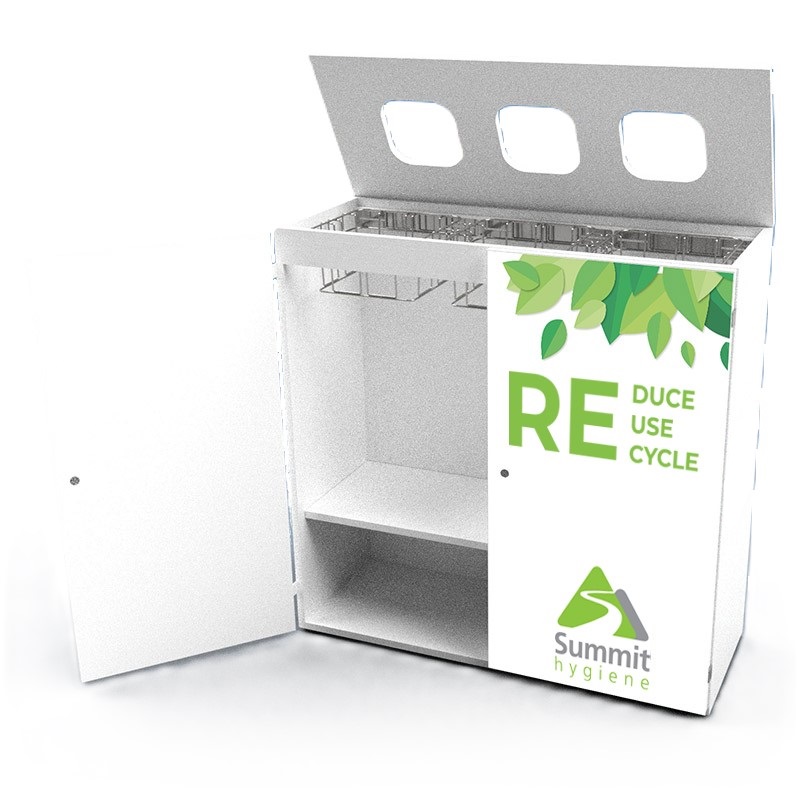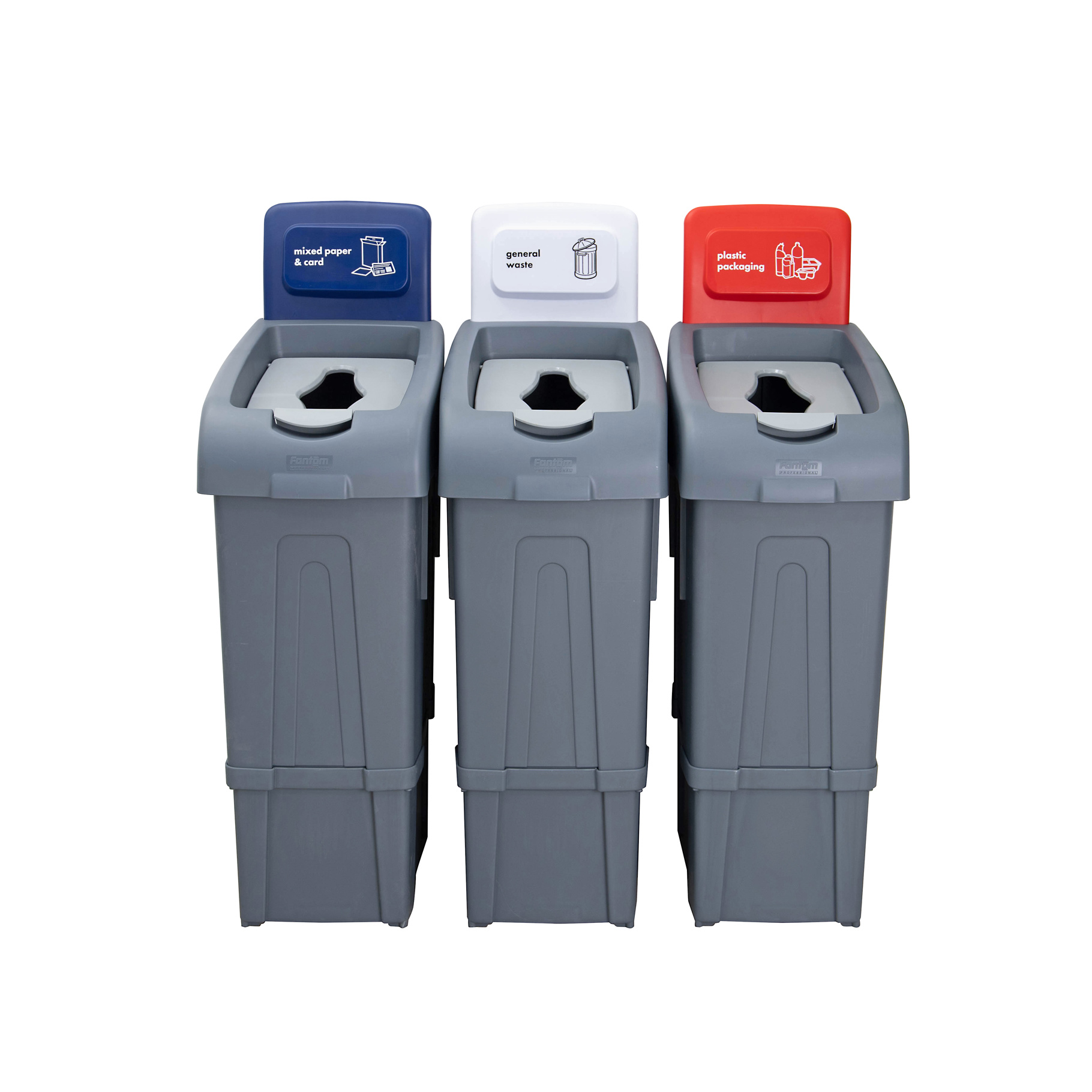Thursday 5th December 2024
New rules around business waste are set to be enforced from the 31st March 2025. The new legislation, also known as Simpler Recycling Legislation 2025, aims to improve waste collection quality and quantity by standardising waste collection, separating food waste from other waste and minimising the amount of waste that goes to landfill.
As of 31st March 2025, all local authorities and non-household premises in England will all be required to collect the same recyclable waste streams for recycling or composting. These streams are dry mixed recycling, food waste and residual non-recyclable waste, there is also an optional garden waste stream which can be charged for by councils and is not compulsory for businesses.
What’s included in the waste streams?
Dry Mixed Recycling - Glass, Metal and PlasticsPaper and Card
Food waste
Residual Non-Recyclable
Food waste
Residual Non-Recyclable
Why?
The purpose of this is to standardise recycling practices under the Environment act 2021 and to further increase the amount the waste which is recycled in the UK
Particularly the food waste collection will reduce the amount of food going to landfill where it releases harmful greenhouse gases. This will support achieving the Net Zero Strategy of eliminating biodegradable waste being sent to landfill from 2028. Instead, when collected separately they can be reprocessed to create organic fertiliser and biogas which can be used to generate electricity which will bolster the UK’s energy security.
Particularly the food waste collection will reduce the amount of food going to landfill where it releases harmful greenhouse gases. This will support achieving the Net Zero Strategy of eliminating biodegradable waste being sent to landfill from 2028. Instead, when collected separately they can be reprocessed to create organic fertiliser and biogas which can be used to generate electricity which will bolster the UK’s energy security.
Who’s affected?
The new regulations apply to all businesses, the public sector and third-sector organisations including:
- Prisons
- Hospitals
- Care Homes
- Office Blocks
- Schools and Colleges
- Places of Worship, etc.
How To Prepare
1 Identify your waste streams
Start by reviewing the types of waste your business produces and where they are generated. Consider areas such as:
- Kitchens and staff break areas (food waste, packaging, drinks cans).
- Offices and workspaces (paper, cardboard, plastic waste).
- Warehouses or back-of-house areas (bulk packaging materials, general waste).
2 Set up a food waste collection system
If your business produces food waste, you must have a separate collection system in place. Under the new rules, food waste must not be disposed of via macerators or digestion equipment.
3 Ensure the right bins are in the right places
Place dedicated bins in areas where each waste stream is generated.
4 Use clear signage to prevent contamination
Incorrectly sorted waste can lead to contamination, making it harder to recycle. Use clear labels, colour-coded bins, and simple visual guides to show what belongs in each bin.
5 Education & training
A successful recycling system relies on staff participation. Provide training and regular reminders to reinforce good habits.
Summary of Implementation Dates for Businesses
31/03/2025: All Businesses Excluding Micro Businesses - Food and Dry Mixed Recycling
31/03/2027: All Micro Businesses*
*A company with fewer than 10 FTE employees. Measured per enterprise and not per site
Our Solutions
Enquire for pricing
The Hyclenz Continuous Sack System

The Hyclenz continuous bag system uses a special “endless” sack. It’s as simple as fill, seal, cut, restart, saving up to 50% of your maintenance team’s time changing sacks. When one bag is closed, the next is immediately ready to use!
The Hyclenz Continuous Sack Cabinets, available in two- or three-hole configurations, are designed for maximum efficiency. They feature separate, clearly labelled compartments to simplify waste sorting and ensure compliance. Built with durable, easy-to-clean materials, the cabinets are perfect for high-traffic areas, promoting hygiene alongside sustainability.
The Hyclenz Continuous Sack Cabinets, available in two- or three-hole configurations, are designed for maximum efficiency. They feature separate, clearly labelled compartments to simplify waste sorting and ensure compliance. Built with durable, easy-to-clean materials, the cabinets are perfect for high-traffic areas, promoting hygiene alongside sustainability.
Procycle Recycling bins

- Simplifies Waste Recycling
- Easy to Assemble
- Comes With Connector To Secure Bins Together
- Features 2 Slots To Secure Bags
Slim Jim Recycling
.jpg)
10% off! Email sales@summithygiene.com to claim your discount.
- Effective Waste Segregation
- Built-In Venting Channels
- Easy Installation
- Integrated Bag Cinches
- Easy Cleaning
- Space-Efficient


